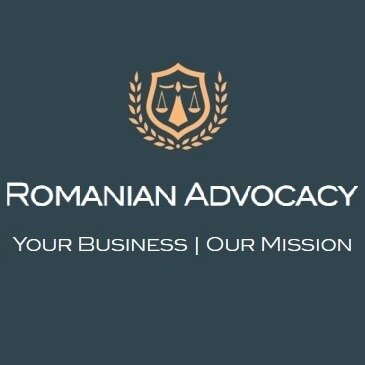Best Faith-Based Law Lawyers in Bucharest
Share your needs with us, get contacted by law firms.
Free. Takes 2 min.
List of the best lawyers in Bucharest, Romania
About Faith-Based Law in Bucharest, Romania
Faith-Based Law in Bucharest, Romania, refers to legal matters that intersect with religious beliefs and practices. Due to Romania's predominantly Christian Orthodox culture, religious influences can impact various legal areas such as marriage, inheritance, and family disputes. Additionally, Romania recognizes the autonomy of religious denominations in certain internal affairs through its Law on Religious Freedom. Despite this, all activities must comply with national laws and human rights standards.
Why You May Need a Lawyer
Individuals may seek legal advice in Faith-Based Law for various reasons. Common situations include disputes involving religious practices, conflicts between religious laws and civil laws, issues concerning religious institutions, employment disputes within religious organizations, and family law cases where religious considerations play a pivotal role. Additionally, navigating the complexities of religious freedom and discrimination may also necessitate legal expertise.
Local Laws Overview
In Bucharest, key aspects of local laws relevant to Faith-Based Law include: Law No. 489/2006 on Freedom of Religion, which outlines the rights and responsibilities of religious groups; provisions in the Romanian Constitution that safeguard religious freedom; and civil codes that govern family and inheritance law, which can sometimes clash with religious customs. It's also important to consider how European Union regulations and human rights criteria apply in religious contexts.
Frequently Asked Questions
What is the relationship between state law and religious law in Romania?
The Romanian legal system prioritizes state law but allows religious denominations to govern internal affairs autonomously. However, all religious activities must comply with national laws, including human rights standards.
Can religious groups influence legal decisions in Romania?
While religious groups may offer guidance to their followers, legal decisions remain within the judiciary's secular domain, influenced by civil law rather than religious doctrines.
How does Romanian law address religious discrimination?
Romanian law prohibits discrimination based on religion. Individuals who face such issues may seek redress through national anti-discrimination bodies and the judicial system.
What legal rights do religious organizations have in Romania?
Religious organizations are recognized as legal entities with rights to own property, establish places of worship, and conduct activities aligned with their beliefs, subject to national law.
Are religious marriages legally recognized in Romania?
Religious marriages must be registered with civil authorities to gain legal recognition under Romanian law, as civil marriage is the only legally binding form.
How can one resolve conflicts between religious obligations and employment laws?
Conflicts between religious obligations and employment laws can be complex and often require legal mediation or representation to balance faith-based considerations with contractual or statutory obligations.
How are religious inheritance matters handled in Romania?
Inheritance matters are governed by Romanian civil law, though individuals may express religious wishes in wills or family agreements, provided they do not contravene mandatory legal rules.
What happens when religious law conflicts with child custody issues?
In child custody cases, the best interest of the child is paramount. Courts may consider religious upbringing but will prioritize the child's welfare and rights.
Can I refuse medical treatment for religious reasons under Romanian law?
Individuals may refuse medical treatment on religious grounds; however, legal intervention may occur if a refusal poses a significant risk to life, especially for minors.
Does Romania recognize religious holidays as public holidays?
Romania observes several Christian holidays as public holidays. Employees may negotiate time off for other religious observances based on employment contracts or organizational policies.
Additional Resources
For more information or assistance, consult the Romanian Ministry of Culture and National Identity, which oversees religious affairs, or the National Council for Combating Discrimination. Additionally, reaching out to local legal professionals or human rights organizations specializing in religious matters can provide valuable support.
Next Steps
If you require legal assistance in Faith-Based Law, consider consulting a lawyer specializing in this field. Begin by gathering all relevant documents and details of your case. Arrange consultations to discuss your needs and ascertain the lawyer's expertise. Moreover, consider leveraging mediation services if conflicts can be resolved amicably outside court.
Lawzana helps you find the best lawyers and law firms in Bucharest through a curated and pre-screened list of qualified legal professionals. Our platform offers rankings and detailed profiles of attorneys and law firms, allowing you to compare based on practice areas, including Faith-Based Law, experience, and client feedback.
Each profile includes a description of the firm's areas of practice, client reviews, team members and partners, year of establishment, spoken languages, office locations, contact information, social media presence, and any published articles or resources. Most firms on our platform speak English and are experienced in both local and international legal matters.
Get a quote from top-rated law firms in Bucharest, Romania — quickly, securely, and without unnecessary hassle.
Disclaimer:
The information provided on this page is for general informational purposes only and does not constitute legal advice. While we strive to ensure the accuracy and relevance of the content, legal information may change over time, and interpretations of the law can vary. You should always consult with a qualified legal professional for advice specific to your situation.
We disclaim all liability for actions taken or not taken based on the content of this page. If you believe any information is incorrect or outdated, please contact us, and we will review and update it where appropriate.











